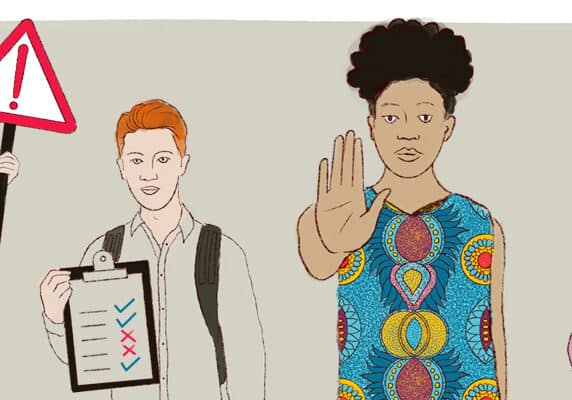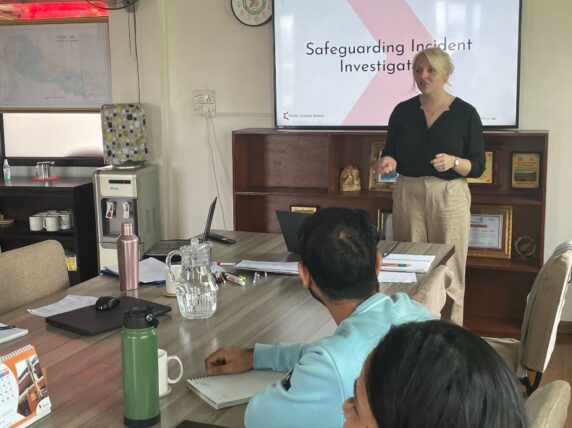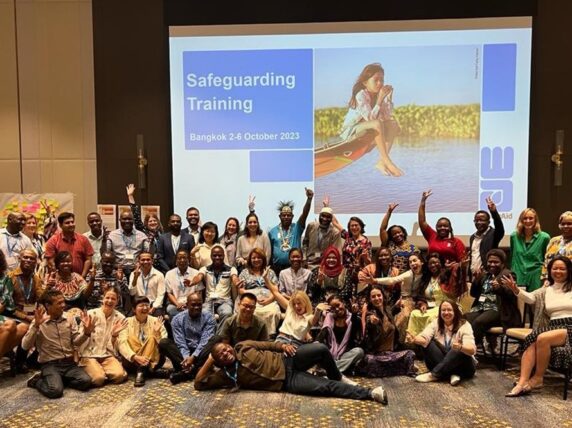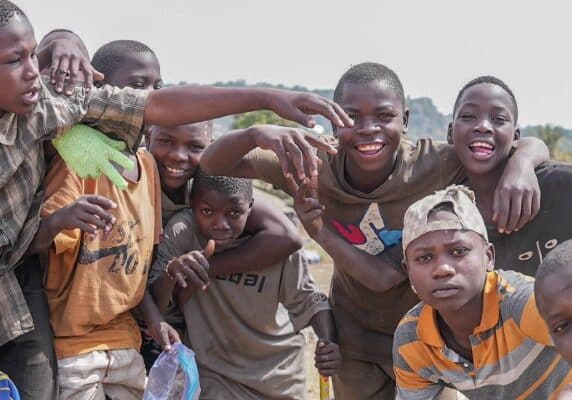Recognising the importance of safeguarding, International Health Partners (IHP) initiated the Safeguarding Action Group, an internal body dedicated to embedding a robust safeguarding culture within the organisation.
Recently, a public, online consultation sought views on the proposed ‘Common approach to protection from sexual exploitation, sexual abuse and sexual harassment (CAPSEAH)’. In this blog, we discuss the findings and how they are helping to improve CAPSEAH and a brief refresh on what CAPSEAH actually is.
Why is gender-based violence so endemic within humanitarian settings? Poorly planned distributions can create the perfect conditions for exploitation from strangers, abusive intimate partners, or by aid workers themselves. But there are steps humanitarian actors can take to help prevent it. Laura Hendy from World Jewish Relief tells us more.
In October 2023, WaterAid held their first ever Participatory Safeguarding Workshop, bringing together 43 safeguarding champions from 29 countries. Nicci Morgan and Renae Davies share their takeaways, and what they learned from holding the event.
Railway Children have developed a new way of reaching at risk children through a bus terminal in Mwanza, Tanzania. Programme Development Director Pete Kent tells us all about it.
We fear that safeguarding in our sector will be forgotten, and the last thing we want is another crisis to remind us of its importance. To avoid future scandals, five years on, it is time for organisations to take stock of their safeguarding practices and continue to make improvements.
The Common Approach to Sexual Exploitation, Abuse and Harassment (CAPSEAH) sets out a collective vision for action, common principles and minimum recommended actions to underpin sexual exploitation, abuse and harassment work. We need your help to shape it.
 Briefing
Briefing
This first briefing focuses on safeguarding approach and complaints & whistleblowing. These case studies can be used to support UK aid-funded INGOs that work with partners to implement due diligence within the partnerships to safeguard against sexual exploitation, abuse and harassment (SEAH), but they can also help any organisation and donor think about their safeguarding practices and procedures too.
 Briefing
Briefing
This second briefing focuses on code of conduct, recruitment, and training. These case studies can be used to support UK aid-funded INGOs that work with partners to implement due diligence within the partnerships to safeguard against sexual exploitation, abuse and harassment (SEAH), but they can also help any organisation and donor think about their safeguarding practices and procedures too.








